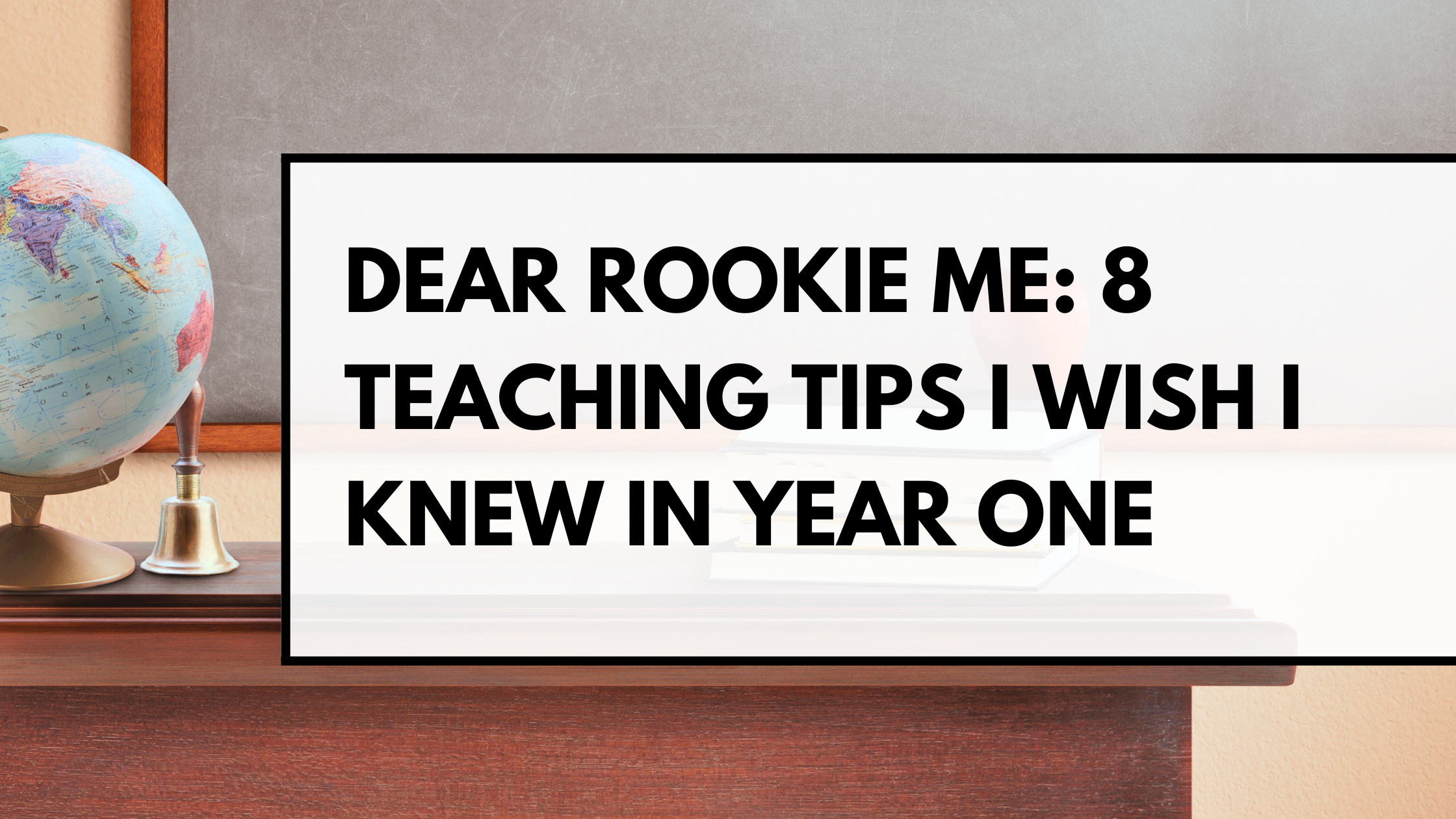Dear Rookie Me: 8 Teaching Tips I Wish I Knew in Year One
Time really does speed up as you get older. I remember scoffing at my district’s pension plan back in the day—eight years of service to qualify? Yeah right, I thought. No way I’d be in teaching that long. I had plans. I was just passing through.
And yet… here I am. Wrapping up year seven teaching 11th grade U.S. History. And not only am I still here—I actually enjoy it.
Will I teach forever? Maybe. Maybe not. I’m a water sign married to an air sign, so we tend to float with the breeze and go with the flow. But while I’m still in the classroom, I’ve picked up a few tricks that make things a lot smoother. So this post is a letter to my younger teacher self—because those first few years were roughhh, but survivable, and fun and moved fast.
Here are 8 things I wish I’d known sooner:
1. Call or Email Parents on the FIRST Phone Incident
This is a controversial topic, but do NOT allow phone usage in the classroom. If a student has their phone out and refuses to put it away or surrender it, loop in the parent immediately. Don’t delay. Don’t argue. Early communication shows you care, sets expectations, and builds a team around that student.
2. Sleeping in Class? Get Creative
Tap the desk. Gently poke them with an eraser. Or sing the first line of a Justin Bieber song (I’ve done it—no shame). If they stay asleep, let it be. Respect is mutual. You’re not there to babysit naps, but you can nudge with humor and grace.
3. A Little Effort Goes a Long Way
Sometimes, just showing up is a big win. Not every kid will ace your class—and that doesn’t make you a bad teacher. We aren’t lowering the bar; we’re recognizing that mental health matters, for our students and ourselves.
4. B O U N D A R I E S
I’m warm. I’m approachable. I let students eat in my room during lunch. But I am also the adult in the room, and I never let that get blurred. Students thrive with clear expectations—and so do you. Be kind, but hold the line.
5. They Will Play Too Much
Even juniors. Especially juniors. They still need structure and redirection. Use a call-and-response like, “1, 2, 3, all eyes on meee!” (Yes, high schoolers will roll their eyes—but they’ll also respond.) Keep classroom routines predictable and firm.
6. Don’t Take Tantrums Personally
If a student melts down, don’t match their energy. Stay calm, stay professional. Clean up. Reset. Move on. You’re not there to win the fight—you’re there to model what resilience looks like.
7. Bathroom Passes… TBD
One day I’ll crack the bathroom code. For now, I’ve tried everything from hall passes to sign-out sheets to “just say no.” I’m still searching for the sweet spot. Suggestions welcome. 😅
8. Let the Students Teach Sometimes
Turn the mic around. Let students explain key concepts, present review games, or teach a timeline. You’d be surprised what happens when they take the lead—they just might shine in ways you never expected.
Final Thoughts: You’ve Got This
Teaching isn’t perfect. Some days are draining. But over time, you learn to ride the chaos with a little humor, a lot of patience, and a soft heart wrapped in steel. If I could go back, I’d hug that rookie teacher and say:
You’ve got this. 💛
